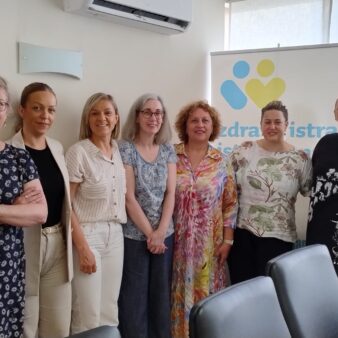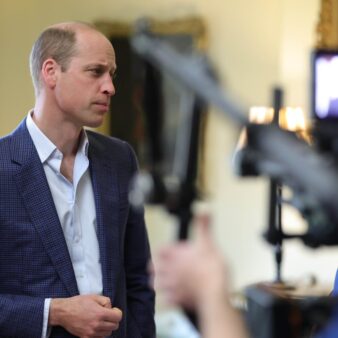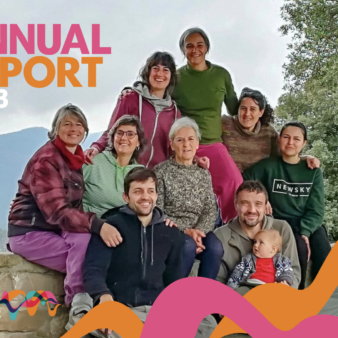
In May 2023, World Habitat Trustee, Adam Challis spent some memorable days in Dakar, Senegal with a community visit, international workshops and the presentation of the 2023 Gold World Habitat Award to UrbaSEN and Fédération Sénégalaise des Habitants (FSH) at the Global Social Economy Forum. Here are his ‘Notes from Dakar’.
As I write this blog from the rooftop of UrbaSEN’s offices in Guédiawaye, an informal settlement community on the outskirts of Dakar, the noises of boys playing football – the beautiful and universal game – ascend to me from the street below. There is joy, there is shouting, there are occasional disagreements.
Life in Guédiawaye is hard and it is often remarkable to those used to Western European standards of living that the lack of ‘things’ does not mean a lack of joy. As with most informal settlements areas, life happens on the street and it is full of sounds, smells, energy and the sight of people engaged in all manner of activities.
Until recently, this pocket of Senegal had even deeper challenges to manage, quite literally. Annual rains meant for several months of the year, street life was under water, sometimes over 1 foot deep. The result of a complex backstory of drought, drained low-lying land, overpopulation, and the re-establishment of an underground aquifer meant when the rains came, they stayed. Climate change is only exacerbating these impacts.
The 2023 World Habitat Awards Gold winners, UrbaSEN and Fédération Sénégalaise des Habitants (FSH), are part of a matrix of technical, governmental, and community-based expertise that set to work stabilising the living environments in Guédiawaye and other affected communities. The analysis of technical and engineering challenges established a clear pathway towards flood reduction and management. Yet the real work of supporting the community to thrive had only just begun.
Importantly, and from the outset, UrbaSEN and FSH built strong community-based partnerships to identify and tackle local priorities. FSH established and federates women-led savings groups to support the funding of projects and to build collective enfranchisement. Using the eyes and ears of residents to give nuance and context to priorities has meant that this precious money was and is spent wisely.
Examples in sanitation include toilet solutions for 10-family units, where households are trained to remove waste and clean their facility on a rota. A range of toilet models were created and made available to deal with different servicing access and ground surface challenges. Public facilities were built by taking the requirements of market traders into account. Additional washing facilities reflected the needs of the majority Muslim population.
Elsewhere, basic craftspeople skills were cultivated through the construction of new public spaces such as a library using local materials, ensuring that livelihoods once created, were protected. With larger interventions, such as the use of leftover space created during the construction of the new Dakar Rapid Transit line, again local traders and the community were brought together in partnership with local government to return this space to public use that is relevant to local needs such as shelter for intracity bus services and dedicated bays for shops and services.
The remarkable achievements of UrbaSEN and FSH are less about visible outcomes than the establishment of community trust and engagement through local networks. It is sometimes attractive for outsiders to focus on top-down interventions that follow analysis and dispassionate observations of known local challenges. But to establish lasting solutions that genuinely build resilience for local communities, trusted partnerships within communities are essential.
It would be easy to make a trite comment about the improved potential of the boys playing football down on the street below me as a result of the careful and thoughtful solutions delivered in Guédiawaye. But I’m drawn to the parallel of formal and informal rules that govern their game. Sure, they have a sense of the basic FIFA standards, but no less important are the tacit understandings of pitch boundaries (walls), goal posts (bricks) and fair play (stoppages for passing traders) that govern their game. They most certainly disagree from time to time, but they are without question enriching their experience and the quality of the game by working together. Community building is like that sometimes.




Join the discussion